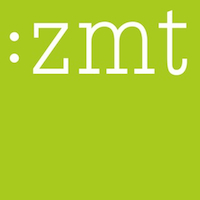| Pages in topic: [1 2 3 4] > | Agencies using ChatGPT to translate languages they don't understand Thread poster: Tom in London
|
|---|
Tom in London
United Kingdom
Local time: 08:46
Member (2008)
Italian to English
I'm seeing reports about agencies that are using ChatGPT to translate languages they don't understand, and then asking the translator to correct the ChatGPT translation - for a severely reduced price.... See more
| | | | Samuel Murray 
Netherlands
Local time: 09:46
Member (2006)
English to Afrikaans
+ ...
Tom in London wrote:
I'm seeing reports about agencies that are using ChatGPT to translate languages they don't understand...
Most agencies buy and sell translations in languages that the employees of the agency don't understand.
... and then asking the translator to correct the ChatGPT translation - for a severely reduced price.
Yes, but this applies to machine translation editing in general. The translator rarely gets his full per-word rate when he's "editing" a machine translation.
| | | | Tom in London
United Kingdom
Local time: 08:46
Member (2008)
Italian to English
TOPIC STARTER
Samuel Murray wrote:
Tom in London wrote:
I'm seeing reports about agencies that are using ChatGPT to translate languages they don't understand...
Most agencies buy and sell translations in languages that the employees of the agency don't understand.
... and then asking the translator to correct the ChatGPT translation - for a severely reduced price.
Yes, but this applies to machine translation editing in general. The translator rarely gets his full per-word rate when he's "editing" a machine translation.
Yes but what if the translator doesn't understand the source language? That is the point, I think.
| | | | | I thought the same thing | Dec 24, 2024 |
Samuel Murray wrote:
Tom in London wrote:
I'm seeing reports about agencies that are using ChatGPT to translate languages they don't understand...
Most agencies buy and sell translations in languages that the employees of the agency don't understand.
That's what I thought, too. That's how the whole thing works. Hardly unusual.
If you click the link, it's an agency asking a translator to correct a ChatGPT translation from a language that the translator doesn't understand. I guess Tom's rage has affected his usual clarity of expression
| | |
|
|
|
Zea_Mays 
Italy
Local time: 09:46
English to German
+ ...
| monolingual editing | Dec 24, 2024 |
Just ask to be paid by the hour.
But I would refuse to work that way too.
[Bearbeitet am 2024-12-24 10:49 GMT]
| | | | Samuel Murray 
Netherlands
Local time: 09:46
Member (2006)
English to Afrikaans
+ ...
| Sure, I'll do it (sorry, did not read the post) | Dec 24, 2024 |
Sorry, I did not read the post. The agency is asking the *translator* to use ChatGPT to translate from a language that is not professionally proficient in.
The relevant part of the post is:
This same PM has now asked me to translate a very long doc in a language that is kind of somewhat related to my main language so that I can get the gist of what is being said, but which is sufficiently different for me NOT to be able to translate from it pro... See more Sorry, I did not read the post. The agency is asking the *translator* to use ChatGPT to translate from a language that is not professionally proficient in.
The relevant part of the post is:
This same PM has now asked me to translate a very long doc in a language that is kind of somewhat related to my main language so that I can get the gist of what is being said, but which is sufficiently different for me NOT to be able to translate from it professionally. I have made this clear. In this task I would have been expected to use ChatGPT to "translate" the complex and nuanced doc and then perform formatting of the text and all footnotes to conform to a particular style. All for the princely sum of $0.06 per word for "translation" and editing (far below my translation rate. This is their "AI rate"). I have no idea what they have told their client who has asked for this translation.
I would be willing to do this. This is essentially monolingual editing, except that it is done in a CAT tool while the translator is able to also see a version of the text in a foreign language. I would, however, insist that the end-client is made aware of the procedure. I would not want the end-client to think that I had "translated" the file. I'll basically check the file for anything that doesn't quite make sense, ensure that the terminology is used consistently, etc. Not all end-clients want or need a translation that contains no meaning-related errors -- some end-clients just want a target-language version of the source document that contains no spelling, grammar or syntax errors. Naturally I would also not be responsible/liable for any meaning-related translation errors.
The post also contains this gem, which I believe is context:
One PM has taken it upon themselves to offer post-translation editing (i.e. not post-machine translation editing but post-human translation editing) of longer documents, up to book length, written in and translated from languages that the agency does not normally deal with by translators who[m] they don't manage. They edit these documents by pasting the source into AI and then seeing if it matches the translation. The PM has no knowledge of these languages (presumably no knowledge of the source language, but able to edit in the target language) and often they are in alphabets they cannot even read.
Again, if the end-client knows that this procedure is being followed, then this should be okay. It combines a monolingual edit of the translation with a component that checks whether there may be any meaning-related errors. The PM (or a translator hired by the PM) checks the translation for spelling, grammar and syntax errors, while the PM (or translator) checks the AI rendered target text against the human-translated target text, much in the same way as one might check a back-translation against a source text.
It sounds like the agency had been offering this service to its clients for a while, in languages that the PMs are able to edit in professionally, but they now want to expand their operations to other languages, by using translators for this work.
Added:
I said several times that the client must know that this procedure is being followed. The OP in that post clarified in a later reply: They have told their client that I will be providing a professional translation of this work using ChatGPT. In other words, the client believes that he's getting a human translation. Not okay.
[Edited at 2024-12-24 12:29 GMT] ▲ Collapse
| | | |
Samuel Murray wrote:
Not all end-clients want or need a translation that contains no meaning-related errors -- some end-clients just want a target-language version of the source document that contains no spelling, grammar or syntax errors.
Who needs a text that is free of meaning-related errors anyway? Silly us, worrying about trivialities like that.
| | | | Samuel Murray 
Netherlands
Local time: 09:46
Member (2006)
English to Afrikaans
+ ...
Rachel Waddington wrote:
Who needs a text that is free of meaning-related errors anyway? Silly us, worrying about trivialities like that.
The world is changing, and many companies are now much more willing to take a risk with potential mistranslations as long as their customers (who read those texts) don't get offended by poor language.
Many companies now argue like this: an advert or brochure or user manual that captures all of the meaning but is written in poor style will do more damage to a company's reputation than a document that may contain a few meaning-related errors but use superb style. So, if cost is an issue, which quality should a company choose to skimp on... meaning quality or style quality? Unfortunately, many companies now choose to prioritize language purity over semantic accuracy.
| | |
|
|
|
Tom in London
United Kingdom
Local time: 08:46
Member (2008)
Italian to English
TOPIC STARTER
Samuel Murray wrote:
Rachel Waddington wrote:
Who needs a text that is free of meaning-related errors anyway? Silly us, worrying about trivialities like that.
The world is changing, and many companies are now much more willing to take a risk with potential mistranslations as long as their customers (who read those texts) don't get offended by poor language.
Many companies now argue like this: an advert or brochure or user manual that captures all of the meaning but is written in poor style will do more damage to a company's reputation than a document that may contain a few meaning-related errors but use superb style. So, if cost is an issue, which quality should a company choose to skimp on... meaning quality or style quality? Unfortunately, many companies now choose to prioritize language purity over semantic accuracy.
But what if the document is life-critical? E.g. a coroner's report, or a manual for using a machine?
| | | |
May God help to those who will learn from those translations.
| | | | Samuel Murray 
Netherlands
Local time: 09:46
Member (2006)
English to Afrikaans
+ ...
Tom in London wrote:
But what if the document is life-critical? E.g. a coroner's report, or a manual for using a machine?
I'm not sure why you ask this question, because the answer seems obvious: the end-client would weigh the risks and determine how the potential detrimental effect meaning errors stacks up against the risks to its customers.
| | | | | True, but .. | Dec 24, 2024 |
Samuel Murray wrote:
Rachel Waddington wrote:
Who needs a text that is free of meaning-related errors anyway? Silly us, worrying about trivialities like that.
The world is changing, and many companies are now much more willing to take a risk with potential mistranslations as long as their customers (who read those texts) don't get offended by poor language.
Many companies now argue like this: an advert or brochure or user manual that captures all of the meaning but is written in poor style will do more damage to a company's reputation than a document that may contain a few meaning-related errors but use superb style. So, if cost is an issue, which quality should a company choose to skimp on... meaning quality or style quality? Unfortunately, many companies now choose to prioritize language purity over semantic accuracy.
A user manual that contains 'meaning-related errors', whilst being written in a smooth enough style that no-one questions it, is potentially dangerous. It's unlikely that an editor who doesn't understand the source language would understand the company's products enough to spot if the user was being instructed to do something that could (e.g.) lead to the device catching fire or otherwise harming the user/destroying itself.
AI arbitrarily makes things up and/or leaves out important parts of a text. This won't show up in lumpy style. The editor won't notice.
The same applies to reputational damage that can occur in any kind of client-facing communications. Conveying the intended meaning is a pretty basic requirement.
(We all know this, of course, but convincing clients is another matter).
| | |
|
|
|
Tom in London
United Kingdom
Local time: 08:46
Member (2008)
Italian to English
TOPIC STARTER | Matter of time | Dec 24, 2024 |
It may just be a matter of time before some terrible disaster happens that was caused by an AI-generated translation that contained a mistake.
| | | | | Industry ethics | Dec 24, 2024 |
Samuel Murray wrote:
Tom in London wrote:
But what if the document is life-critical? E.g. a coroner's report, or a manual for using a machine?
I'm not sure why you ask this question, because the answer seems obvious: the end-client would weigh the risks and determine how the potential detrimental effect meaning errors stacks up against the risks to its customers.
The problem with meaning errors in a translation is in the outcomes.
Possible outcome for the client's customers: misunderstanding of product instructions, not buying the client's products.
Possible outcome for the clients: a cheaper “translation” (some might not worry, next time they will use free Google), losing customers/markets, less revenue, more risk of legal issues.
Possible outcome for the translation industry: fewer clients, standards degradation, more risk of legal issues.
If a translation no longer needs to be error-free, industry work ethics goes to the toilet.
If a translation no longer needs to be error-free, the whole translation industry goes to the toilet, ultimately including AI translation.
It's like shooting in the foot; LSPs (human or AI) that engage in these practices should get sued and banned from industry.
| | | | Michele Fauble 
United States
Local time: 01:46
Norwegian to English
+ ...
| The world is changing … | Dec 24, 2024 |
Samuel Murray wrote:
The world is changing, and many companies are now much more willing to take a risk with potential mistranslations as long as their customers (who read those texts) don't get offended by poor language.
Many companies now argue like this: an advert or brochure or user manual that captures all of the meaning but is written in poor style will do more damage to a company's reputation than a document that may contain a few meaning-related errors but use superb style. So, if cost is an issue, which quality should a company choose to skimp on... meaning quality or style quality? Unfortunately, many companies now choose to prioritize language purity over semantic accuracy.
Making a mockery of the profession.
| | | | | Pages in topic: [1 2 3 4] > | To report site rules violations or get help, contact a site moderator: You can also contact site staff by submitting a support request » Agencies using ChatGPT to translate languages they don't understand | Trados Studio 2022 Freelance | The leading translation software used by over 270,000 translators.
Designed with your feedback in mind, Trados Studio 2022 delivers an unrivalled, powerful desktop
and cloud solution, empowering you to work in the most efficient and cost-effective way.
More info » |
| | Anycount & Translation Office 3000 | Translation Office 3000
Translation Office 3000 is an advanced accounting tool for freelance translators and small agencies. TO3000 easily and seamlessly integrates with the business life of professional freelance translators.
More info » |
|
| | | | X Sign in to your ProZ.com account... | | | | | |





























